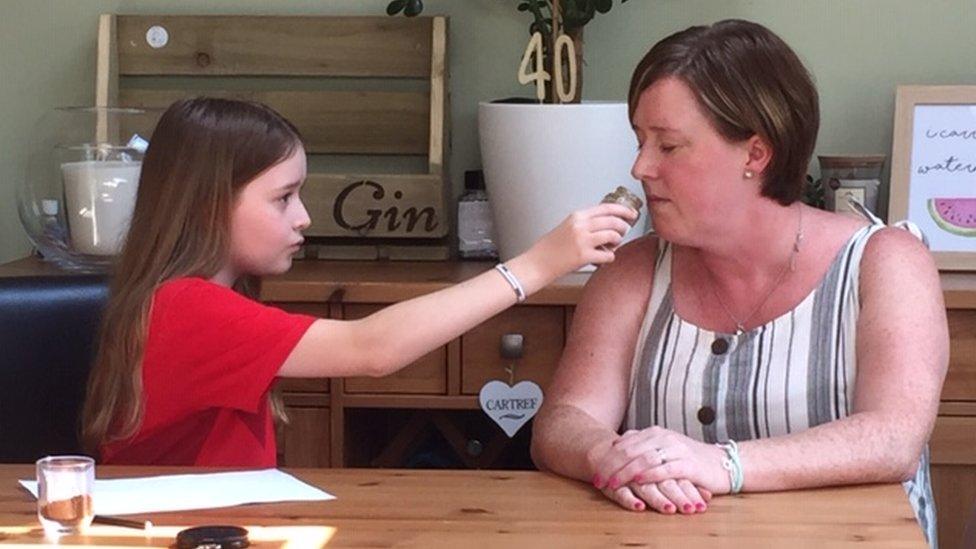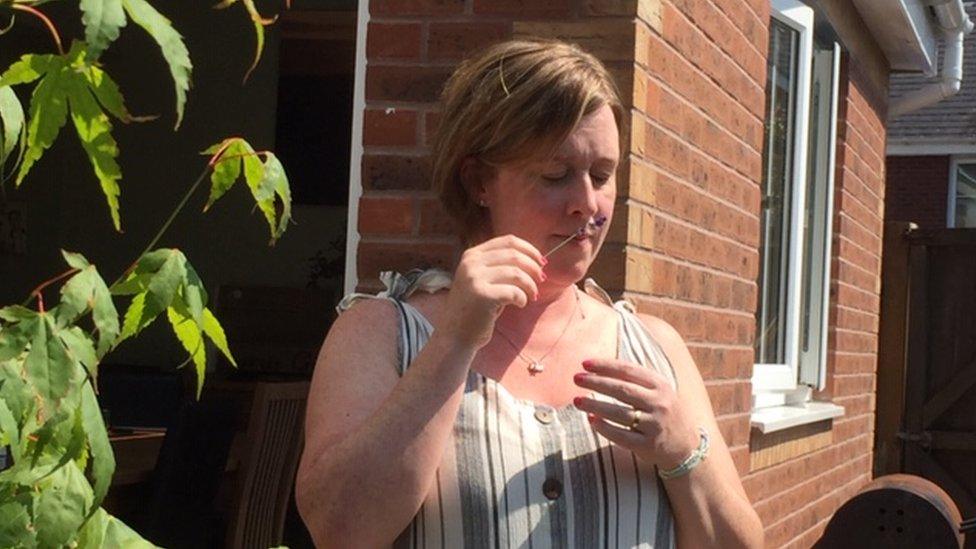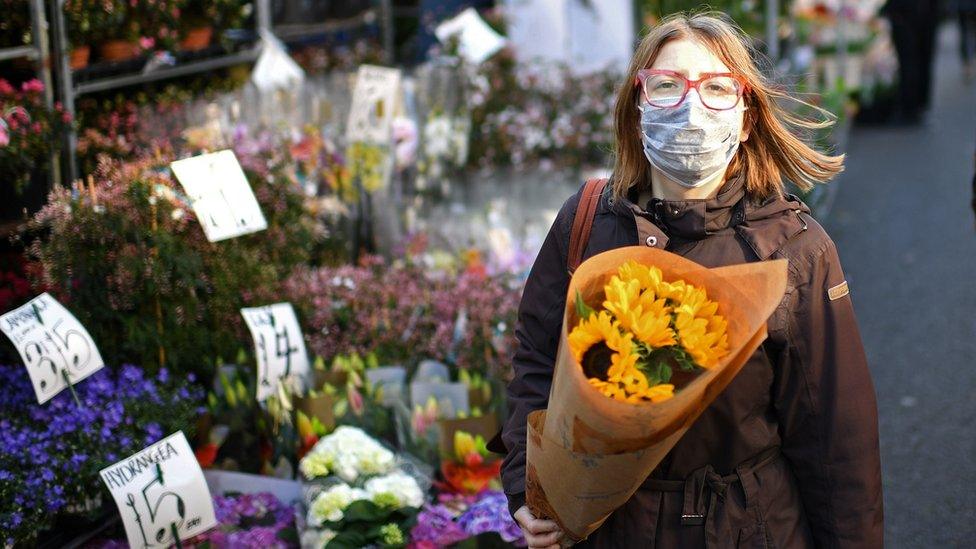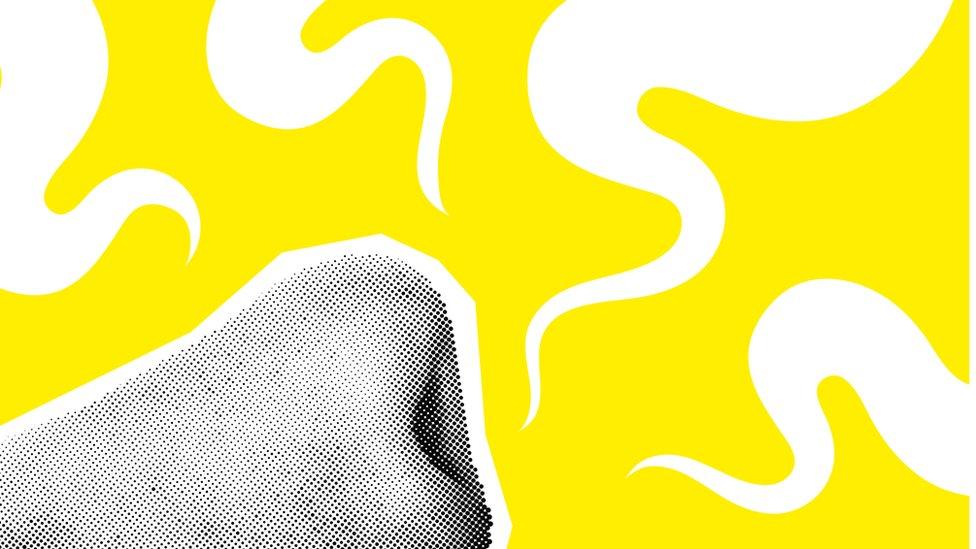Coronavirus: 'Massive' effect of smell and taste lost to virus
- Published
Laura Wood still cannot smell or taste, two months on
Tucking into a cup of coffee and a hot cross bun, Laura Wood sensed something was not quite right.
Her sense of taste and smell had completely vanished.
"I had a cup of coffee, it just didn't taste right. I made another cup then had something to eat - it was a hot cross bun - and I realised it didn't taste of anything," said support worker Ms Wood, from Betws in Carmarthenshire.
It was not until her sister, a nurse, pointed out it was a symptom of coronavirus, that she arranged to have a test - and was stunned to discover she had caught the virus.
"At the time, loss of smell and taste wasn't recognised as a symptom. I was really tired but I didn't have a bad cough or a temperature, so it was a massive shock.
"I don't think anyone can appreciate how massive it is, until it actually happens."

Mari is helping her mother with her smell training
Two months after her recovery, Ms Wood, a mother of three, still cannot get a whiff of anything.
She has daily "smell training" - during which she is blindfolded and asked to smell things like coffee, shoe polish and spices.
'No joy'
"I love to cook but it's taken the joy out of cooking because you get nothing - even simple things like garlic and onion, a chicken cooking in the oven, there's just nothing at the moment," she said.
"It's also the taste, nothing tastes of anything. It's massive - if you lost your sight or your hearing, people would take notice.

"I've tried explaining it to my family but until you've experienced it, you can't put it into words"
Ms Wood receives support from AbScent, which offers support to people with anosmia, external, or smell loss.
The charity says it has been overwhelmed by people like her approaching them for advice after contracting coronavirus, many complaining that their sense of smell has not returned.
Chrissi Kelly, who founded the charity after experiencing post-viral smell loss for two years, said their Facebook group has shot up from 1,500 members to 7,000 since 13 March.
"I knew from my research work with different experts in rhinology that smell loss was a symptom of Covid - we even published a paper on it," she said.
"People were saying 'I've lost my sense of smell, I'm a key worker, should I be self-isolating?'
"But it wasn't recognised until 18 May, which was disappointing. It meant there were a lot of people who were being told to go back to work, which obviously wasn't a good thing."


Ms Wood is now back at work and says she found recovery difficult but is hopeful that her sense of smell will eventually return.
"I've got to look on the positive side. I don't want to trivialise it but things could have been a lot worse. It's not a nice thing to have to live with, and I wouldn't wish this on anyone," she said.
Doctors are still discovering how the virus affects the body and the brain, so it may take some time before the long-term effects are fully understood.

A SIMPLE GUIDE: How do I protect myself?
AVOIDING CONTACT: The rules on self-isolation and exercise
LOOK-UP TOOL: Check cases in your area
MAPS AND CHARTS: Visual guide to the outbreak
VIDEO: The 20-second hand wash

Meanwhile, patients like Ms Wood are finding recovery can take long time and that life does not always return to normal after catching coronavirus.
"I'm optimistic and hopeful that it will return," she said.
"I've tried explaining it to my family but until you've experienced it, you can't put it into words."
- Published18 May 2020

- Published1 April 2020
